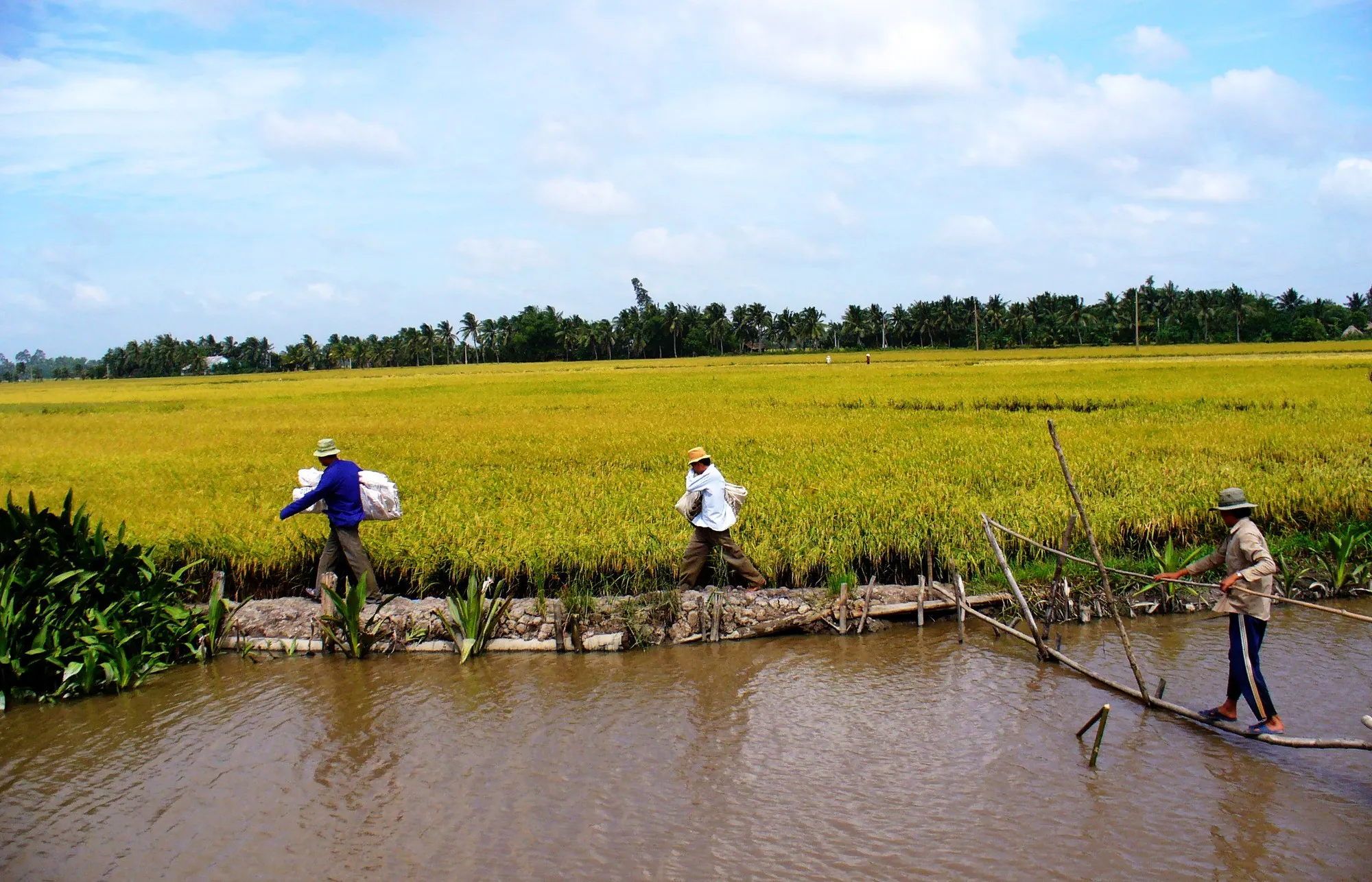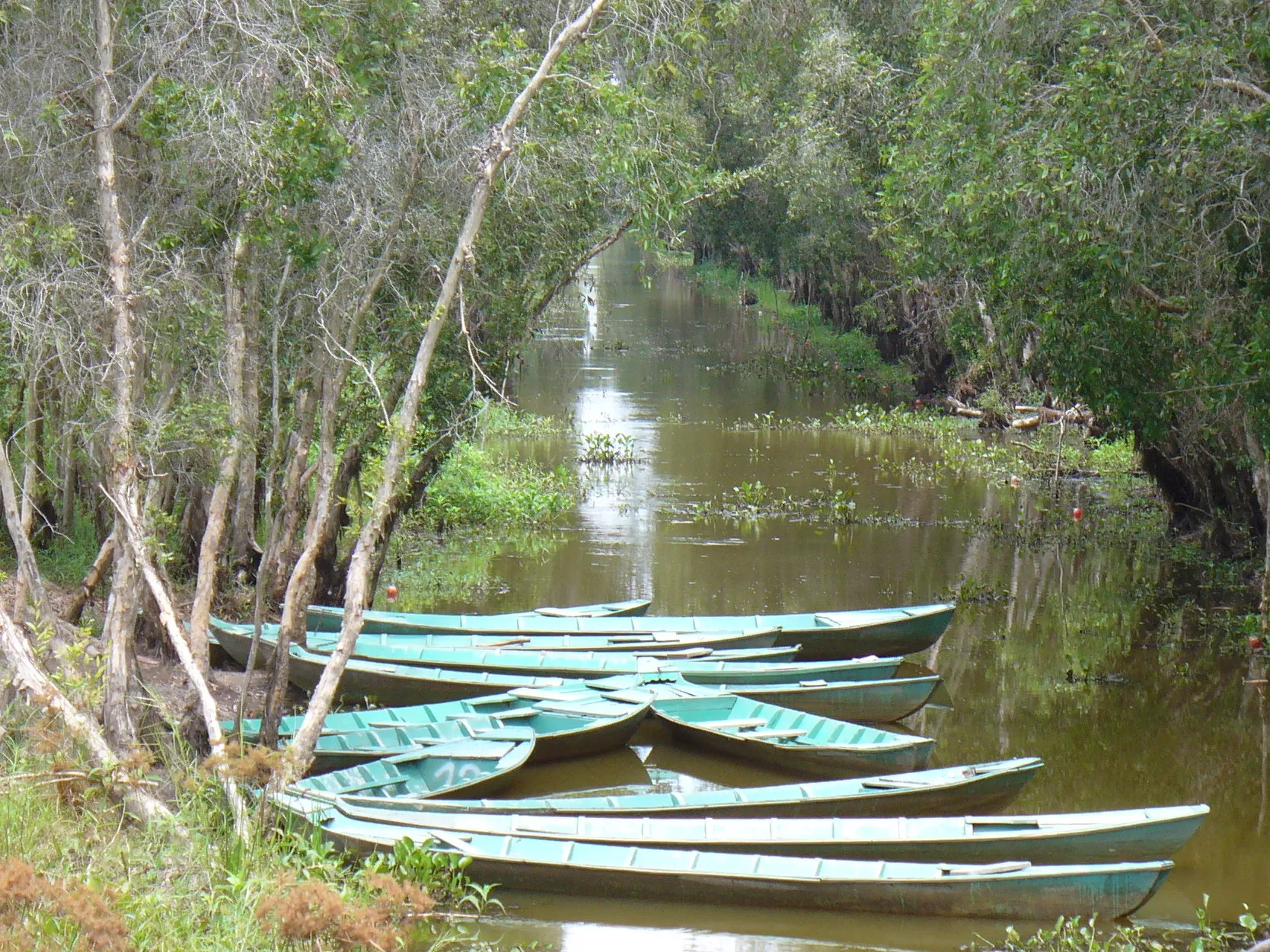The Mekong Delta, a fertile region known as the “rice bowl” of Vietnam, has long been famous for its diverse ecosystem and picturesque natural landscapes. Ecotourism in the Mekong Delta is not just a journey to discover the beauty of rivers and orchards, but also an opportunity to immerse yourself in the peaceful life of local people and experience unique cultural values. In the context of increasingly focused sustainable tourism, the Mekong Delta is gradually asserting its position as an attractive ecotourism destination, offering memorable experiences for visitors.
However, tourism development also poses significant challenges for the Mekong Delta, especially the issue of ecological environment conservation. Environmental pollution, climate change, and urbanization are causing negative impacts on the landscape and the inherent ecosystem. This article will delve into the current situation of ecotourism in the Mekong Delta, its potentials and challenges, and suggest unique and meaningful ecotourism experiences to help visitors discover the pristine and sustainable beauty of this region.
Mekong Delta Ecotourism: Potentials and Challenges
Diverse Ecotourism Potential
The Mekong Delta boasts extremely rich ecotourism potential, created by a dense network of rivers and canals, vast rice fields, lush melaleuca forests, and abundant fruit orchards. Each province in the region has its own unique characteristics, creating diversity and attractiveness for ecotourism:
- Can Tho: Known as the “capital of the Mekong Delta,” Can Tho is famous for the unique Cai Rang floating market, a bustling trading hub on the water, traditional craft villages, and fruit-laden orchards. Visitors to Can Tho can experience boating on the river, visiting the floating market, enjoying local cuisine, and exploring the distinctive river culture.
- An Giang: With the famous Tra Su cajuput forest, An Giang is an ideal destination for those who love exploring pristine nature. The cajuput forest in the flood season has a magical beauty with the green of the cajuput trees, the yellow of sesbania sesban flowers, and the melodious songs of birds. In addition, An Giang also has many historical and cultural relics such as the Oc Eo Relic Site and Ba Chua Xu Temple on Sam Mountain, attracting tourists to learn about local history and culture.
- Dong Thap: Tram Chim National Park is the ecotourism highlight of Dong Thap, a sanctuary for many rare birds, especially the Sarus crane. Visiting Tram Chim in the dry season, visitors can admire the beauty of lotus fields and observe wild birds. Besides, Dong Thap is also famous for Sa Dec flower village, where visitors can admire flowers and learn about the traditional flower growing profession.
- Ca Mau: With the largest mangrove ecosystem in Vietnam, Ca Mau is an attractive destination for marine and forest ecotourism. U Minh Ha National Park and Mui Ca Mau National Park are must-visit destinations, where visitors can explore melaleuca forests, mangrove forests, visit coastal craft villages, and experience the life of people in the riverine region.
- Vinh Long: An Binh Islet with its green fruit orchards, ancient houses, and peaceful atmosphere is an ideal destination for visitors seeking tranquility in the countryside. Visitors can cycle to explore the islet, visit orchards, enjoy fresh fruits, and experience garden life.

Challenges from Environment and Pandemic
However, ecotourism in the Mekong Delta is also facing many challenges, especially from environmental issues and the impacts of the COVID-19 pandemic.
Ecological environment degradation: Water pollution, climate change, saltwater intrusion, and rapid urbanization are causing negative impacts on the ecosystem and natural landscapes of the Mekong Delta. Increasing industrial and domestic waste, along with the use of fertilizers and pesticides in agriculture, have polluted water and land resources. Climate change is increasing drought and saltwater intrusion, affecting agricultural production and mangrove ecosystems. Urbanization is shrinking agricultural land and green spaces, disrupting the characteristic natural landscape of the riverine region.
Impact of the COVID-19 pandemic: The COVID-19 pandemic has had a severe impact on the tourism industry in general and ecotourism in the Mekong Delta in particular. Many ecotourism areas have had to close, the number of tourists has decreased sharply, affecting the income of local people. Although tourism is gradually recovering, for ecotourism in the Mekong Delta to develop sustainably, there need to be synchronous and effective solutions to address environmental issues and adapt to the new situation.
Unique Ecotourism Experiences in Mekong Delta
Overcoming the challenges, ecotourism in the Mekong Delta still offers unique and valuable experiences for visitors. Here are some suggested ecotourism experiences that you should not miss:
Explore Cai Rang Floating Market (Can Tho)
Cai Rang Floating Market is one of the largest and most famous floating markets in the Mekong Delta. Here, visitors will immerse themselves in the bustling trading atmosphere on the water, admire boats laden with goods, from fruits and vegetables to food and drinks and local products. Experiencing boating on the river, enjoying breakfast on a boat, and feeling the vibrant pace of life at the floating market is a unique and unforgettable ecotourism experience.
Tra Su Cajuput Forest in the Flood Season (An Giang)
Tra Su Cajuput Forest is one of the most beautiful submerged cajuput forests in Vietnam, especially during the flood season (around September-November annually). Visitors can take a boat to weave through the green cajuput forest, admire the green duckweed carpet covering the water surface, and admire the beauty of birds living in the cajuput forest. The pristine and tranquil natural scenery of Tra Su Cajuput Forest will bring you moments of relaxation and closeness to nature.

Tram Chim National Park (Dong Thap)
Tram Chim National Park is a conservation area for the characteristic wetland ecosystem of the Plain of Reeds, with many rare birds, especially the Sarus crane. Visiting Tram Chim, visitors can take a boat to explore different areas of the national park, watch birds flying in the sky, and learn about nature conservation efforts. The best time to visit Tram Chim is in the dry season (from about December to April of the following year), when birds gather here to live and forage.
An Binh Islet Fruit Orchards (Vinh Long)
An Binh Islet is one of the greenest and most fertile islets in the Mekong Delta, famous for its lush fruit orchards. Visitors here can visit orchards, pick and enjoy fresh fruits such as rambutan, mangosteen, durian, longan, mango, etc. In addition, visitors can also experience activities such as cycling to explore the islet, participating in Mekong Delta cooking classes, and staying overnight at garden homestays.
Explore Ca Mau Mangrove Ecosystem
Ca Mau is the southernmost land of Vietnam, home to the largest mangrove ecosystem in the country. Visitors can visit U Minh Ha National Park and Mui Ca Mau National Park to explore the pristine beauty of mangrove forests and melaleuca forests, learn about the characteristic flora and fauna of mangrove forests, and experience the life of coastal people. Boating on the river, fishing, catching crabs, and enjoying fresh seafood are must-try experiences when coming to Ca Mau.
Developing Sustainable Ecotourism in Mekong Delta
For ecotourism in the Mekong Delta to develop sustainably, it requires the joint efforts of government authorities, tourism businesses, local communities, and tourists.
For government authorities: It is necessary to have strict tourism planning and management policies, protect the ecological environment, invest in tourism infrastructure, and support local communities to participate in tourism activities.
For tourism businesses: It is necessary to develop quality ecotourism products, focus on environmental protection, respect local culture, and create economic benefits for the community.
For local communities: It is necessary to raise awareness about ecotourism, actively participate in tourism activities, and preserve and promote traditional cultural values.
For tourists: It is necessary to choose responsible forms of tourism, respect the environment and local culture, and support sustainable ecotourism products.
Ecotourism in the Mekong Delta is not only a journey to discover natural beauty, but also an opportunity for us to better understand the value of the environment and culture, and contribute to the sustainable development of this region. Come and experience ecotourism in the Mekong Delta to feel the pristine and peaceful beauty of the “rice bowl” of the South!